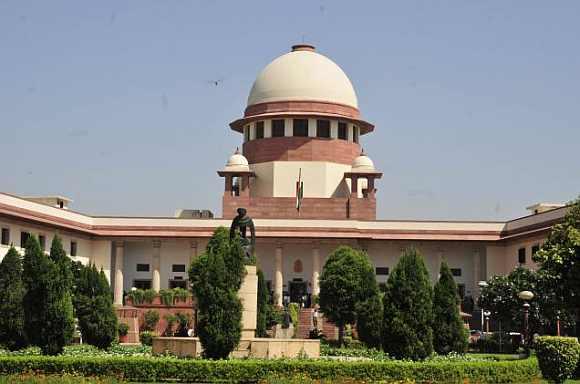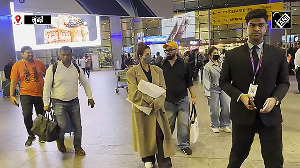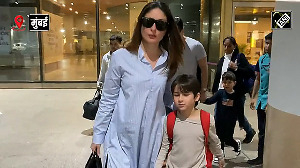 A three-judge bench was on Tuesday set up in the Supreme Court to decide the fate of Yakub Memon, the lone death row convict in 1993 Mumbai blasts case, after a two-judge bench was divided on his plea seeking stay of his execution scheduled on July 30.
A three-judge bench was on Tuesday set up in the Supreme Court to decide the fate of Yakub Memon, the lone death row convict in 1993 Mumbai blasts case, after a two-judge bench was divided on his plea seeking stay of his execution scheduled on July 30.
In the wake of disagreement between Justices A R Dave and Kurian Joseph on the issue, the matter was referred to Chief Justice of India H L Dattu, who constituted a larger bench of Justices Dipak Misra, Prafulla C Pant and Amitava Roy to decide the destiny of Memon who will turn 53 on Thursday.
The new bench will on Wednesday have the task of deciding whether to stay the death warrant issued by TADA court in Mumbai on April 30 and go into the merits of Memon's petition which has claimed that the warrant was issued even before he exhausted all legal remedies before the court.
Uncertainity for Memon aggravated on Tuesday, as Justice Dave dismissed his plea without staying the death warrant while Justice Kurian differed and favoured a stay.
"There will be no order in law if one judge has stayed it (death warrant) and the other has not", the bench was told when it wanted to know the legal position arising out of the divergence of views between the two judges on the issue.
Both Attorney General Mukul Rohatgi and other senioradvocates, including Raju Ramachandran, appearing for Memon, were unanimous on the legal situation that needed to be addressed by larger bench with the indulgence of the CJI.
Justice Dave was of the view that there was no infirmity in the dismissal of curative petition of Memon on July 21 and it was open for the Maharashtra Governor to take a call on his mercy plea as the condemned prisoner has exhausted all available legal remedies.
However, Justice Kurian, who himself had raised a point which was not in Memon's plea that the apex court had not followed correct procedure in deciding his curative petition, said "this defect needs to be cured" and "the curative petition has to be heard afresh".
The judge said in such circumstances, the death warrant has to be stayed.
This prompted Memon's counsel to ask Justice Dave to add a line on staying the death warrant, which he refused.
"Sorry, I will not like to be part of staying the death warrant. Let CJI decide," Justice Dave said and quoted a couplet from Manu Smriti relevant to the issue.
Differing with Justice Kurian that the apex court has not followed the rules laid down by itself in deciding Memon's curative petition, Justice Dave said, "submissions made about the curative petition do not appeal to me as they are irrelevant and there is no substance in them. In these circumstances, the Writ Petition is dismissed".
He noted that the conviction of Memon has been confirmed by this court and the review petition as well as the curative petition filed by him have also been dismissed, in addition to the fact that the President and the Governor of Maharashtra have also rejected applications for pardon "possibly because of the gravity of the offence committed by the petitioner."
Justice Dave said since it was submitted that one more application has been made by Memon to the Governor which was still pending, "it would be open to His Excellency the Governor of Maharashtra to dispose of the said application before the date on which the sentence is to be executed, if His Excellency wants to favour the petitioner."
However, Justice Kurian said, "I regret my inability to agree with my learned brother (Justice Dave), and gave reasonings to draw a point dug by him that a three-judge bench headed by CJI did not follow the established procedure in deciding Memon's curative petition."
While elaborating the procedure laid by the apex court on the curative petition, Justice Kurian said, "Thus, it is found that the procedure prescribed under the law has been violated while dealing with the curative petition and that too, dealing with life of a person.
"There is an error apparent on the face of the order in the curative petition. The mandatory procedure prescribed under law has not been followed," he said.
The judge said since the review petition was heard by a bench comprising Justices Dave, J Chelameswar and himself, the curative petition should have come to them, but instead circulated only to the apex court's three senior-most judges who dismissed it on July 21.
Justice Kurian said Article 21 of the Constitution guarantees life to a person and "the person shall be deprived of his life only in accordance with the procedure established by law."
He said though the senior counsel and the Attorney General referred to various grounds available in a curative petition, "in the nature of the view I have taken in the matter that the curative petition itself has not been decided in accordance with the Rules prescribed by this court, that defect needs to be cured first."
"Otherwise, there is a clear violation of Article 21 of the Constitution in the instant case," Justice Kurian said while noting the contention of Rohatgi that "this is not an issue raised in the writ proceedings."
However, the judge said such technicality would not come in the way of principle of natural justice.
"I do not think that such a technicality should stand in the way of justice being done. When this court as the protector of the life of the persons under the Constitution has come to take note of a situation where a procedure established by law has not been followed while depriving the life of a person, no technicality shall stand in the way of justice being done.
"After all, law is for man and law is never helpless and the court particularly the repository of such high constitutional powers like Supreme Court shall not be rendered powerless," said Justice Kurian.
"In the above circumstances, I find that the order dated July 21 passed in the curative petition is not as per the procedure prescribed under the Rules. Hence, the curative petition has to be considered afresh in terms of the mandatory requirement under Rule 4 of Order XLVIII of the Supreme Court Rules, 2013.
"In that view of the matter, the death warrant issued pursuant to the Judgment of the TADA court dated September 12, 2006 as confirmed by this court by its Judgment dated March 21,2013, of which the review petition has been dismissed on April 9, 2015 is stayed till a decision afresh in accordance with law is taken in the curative petition," Justice Kurian said.






 © 2025
© 2025